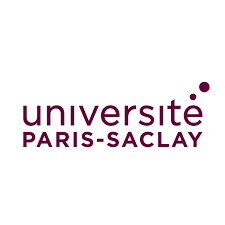-
Complex systems and software engineering
-
Digital
-
Energy, Ecology, Environment
-
Quality of life - Health - Food
Institute of Integrative Cell Biology (I2BC)
Research unit
The Institute of Integrative Cell Biology (I2BC) brings together numerous research teams working on all aspects of the cell, from cell constituents to cell interaction. The institute is divided into five research departments. The first department (B3S) uses many techniques to study biological assemblages at different scales. The Cell Biology department uses numerous eukaryotic models to study the physiological functions of cells. The Department of Genome Biology focuses on the study of genetic material. The Microbiology department is interested in different organisms, such as bacteria, archaea and their viruses, both for their specificities and as models to study biological mechanisms. Finally, the Virology department studies host-virus interactions and processes involved in viral infections.
Innovation themes
- Energy, Ecology, Environment
- Digital
- Complex systems and software engineering
- Quality of life - Health - Food
- Medical equipment (biophotonics, radiation, etc.)
- Digital modelling, data visualisation, Human - Machine Interaction
- Photonics - optical materials, application nanotechnology
- Therapeutic technologies (drugs, genetics, biomarkers, biomolecules, etc.)
- New energy sources and production system
Avenue de la Terrasse
91190 GIF-SUR-YVETTE
Expertises
- interactions and assemblies of macromolecules, proteins, peptides
- oxidative stress and detoxification
- genome integrity
- membrane and nuclear systems
- bioenergetics
Cell Biology Department :
- cellular communication and compartmentalization
- signage, stress and adaptation
Department Biology of Genomes :
- stability and regulation of the genome
- structure and function of DNA and RNA
- transcription and translation process
Department of Microbiology :
- microbial metabolism
- microbial casings
- interaction of microbes with their hosts and the environment
Virology Department :
- structural virology
- cellular virology
- virus entry mechanisms
- intracellular assembly and transport of viral particles
- innate immunity
Applications sectors
- Biotechnology
- Health / wellness
- Cosmetics
Equipment(s) open to collaboration
Keywords
- photosystem II
- membrane systems
- nanobiophotonics
- photosynthesis
- biofilms
- cytoskeleton
- photocatalysis
- biohydrogen
- enzymology
- EPR-HC
- mitochondria
- autophagy
- biogenesis
- morphogenesis
- chromosomes
- radioresistance
- introns
- ribozymes
- retrotransposons
- meiosis
- bioinformatics
- epigenomics
- epigenetics
- corynebacteria
- mucobacteria
- emerging pathogens
- endotoxins
- streptomyces
- bacteriophage
- rhabdovirus
- herpesvirus
- rotavirus
Valuation offer
- microscopies, spectroscopies, crystallography
- genome analysis and modelling
- databases, algorithms and software
- model organizations
Establishments of affiliation

